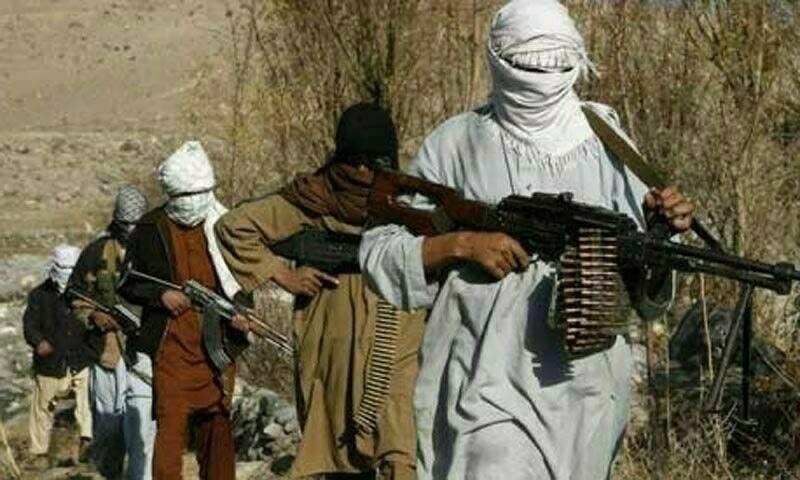By Anwar Bangash
The presence of the banned Tehrik-e-Taliban Pakistan (TTP) in Afghanistan has become a significant concern, not only for Pakistan’s security but also for the brotherly relations between Pakistan and Afghanistan. Despite the Afghan interim government denying the existence of TTP sanctuaries in Afghanistan, there is strong evidence suggesting otherwise. The TTP’s top leadership has been found to be present in Afghanistan, and recent terrorist attacks on Pakistani security forces indicate the involvement of Afghan Taliban fighters.
Pakistan’s military and civilian leadership have consistently expressed their worries over terrorists using Afghan soil to launch attacks on Pakistan. They have also raised this issue with the Afghan authorities. Following the Zhob attack, the Inter-Services Public Relations (ISPR) confirmed the involvement of Afghan nationals in terror attacks in Pakistan. The ISPR expressed concerns about the TTP’s safe havens and freedom of action in Afghanistan, which is against the commitments made in the Doha Agreement.
A new terrorist group called Tehrik-e-Jehad Pakistan (TJP) has claimed responsibility for the Zhob cantonment attack. Security officials and experts, as well as some TTP commanders, believe that the TJP is essentially the front face of the TTP and includes fighters from Afghanistan. The TJP spokesperson stated that their militants previously fought against Russians and Americans in Afghanistan and now intend to carry out “Jehad” in Pakistan.
During the 258th Corps Commanders’ Conference (CCC), concerns over TTP sanctuaries in Afghanistan were also expressed. The ISPR, in its statement after the conference, pointed out that these sanctuaries, along with the availability of advanced weaponry, were major factors impacting Pakistan’s security.
Pakistan’s Defence Minister, Khwaja Asif, has strongly criticized Afghanistan for not adhering to the crucial Doha Agreement, allowing terrorist groups to operate from Afghan soil against other countries. He emphasized that Pakistan has been hosting millions of Afghan nationals for several decades with full rights, yet terrorists find refuge on Afghan soil, causing harm to Pakistan.
In response, the spokesman for the interim Afghan government, Zabihullah Mujahid, defended Afghanistan’s stance, stating that the peace deal with the US does not imply hostility towards Pakistan. He reaffirmed Afghanistan’s commitment to treating Pakistan as a brotherly Muslim country and requested evidence from Pakistan regarding any terrorist activities.
Another Afghan Taliban leader based in Qatar, Sohail Shaheen, has also denied the presence of the TTP in Afghanistan. In a recent interview, Shaheen asserted that the TTP is actually located inside Pakistan, specifically in the tribal areas. He clarified that it is Pakistan’s responsibility to handle such matters within its borders and not the Afghan Taliban’s responsibility.
Speaking to Arab News, Shaheen elaborated on the Afghan Taliban’s policy of peaceful coexistence and positive relations with neighboring countries and other nations. He emphasized that their approach is aimed at fostering regional stability and cooperation. Shaheen suggested that if Pakistan shares a similar policy of peaceful coexistence, it would be beneficial for the entire region, including Afghanistan and neighboring countries.
However, the issue of safe havens and free movement for anti-Pakistan terrorists in Afghanistan contradicts the claims made by the Afghan Taliban regarding the absence of terrorist groups within their territory. A recent report by the United Nations has confirmed the presence of various terrorist groups, including the TTP and Al-Qaeda, in Afghanistan. This raises concerns about the Afghan Taliban’s selective approach in taking action against only the Islamic State of Iraq and the Levant – Khorasan Province (ISKP), an ideological rival of the Afghan Taliban, while allowing other terrorist groups like the TTP to enjoy their hospitality.
While the Afghan Taliban denies the presence of TTP leaders in Afghanistan, they do not deny the killings of TTP leaders in the country. Many TTP, JuA leaders, including TTP Waziristan commander Yasir Parakay, TTP Intelligence Chief Abdul Rasheed alias Uqaabi, Omar Khalid Khorasani, mastermind of the tragic APS attack, Mufti Hassan, Hafiz Dawlat Khan, Akhtar Khalil, Asadullah Pehelwan, Molvi Sibghatullah Takal, Tariq Swati alias Button Kharab and JuA Karachi chief Muhammad Duadzai have been killed in bomb blasts or firing incidents in various parts of Afghanistan . Sarbakaf Mohmand, TTP Zhob chief, died in Nangarhar in mysterious condition. Furthermore, hundreds of TTP prisoners, including Molvi Faqir Muhammad, were released from Afghan jails after the Taliban’s takeover of Kabul.
After the fall of the Ghani government, there were significant incidents involving local Taliban commanders clashing with Pakistan security forces along the Pak-Afghan border. During these clashes, attempts were made to destroy border fences. Disturbingly, videos of Afghan Taliban fighters stationed at the Pak-Afghan border went viral on social media. In these videos, the fighters expressed their intention to extend their so-called Jehad to Pakistan and stated that they were awaiting instructions from their leadership.
Some experts believe that the Afghan Taliban and al-Qaeda played a major role in reuniting the splinter groups of the TTP. Around 32 groups have declared allegiance to TTP’s chief, Mufti Noor Wali Mehsud, who pledged allegiance to the Afghan Taliban ameer, Mullah Haibatullah Akhundzada. The Afghan Taliban’s reluctance to act against the TTP, despite the Doha Accord, indicates the ideological bond between the two groups.
If the Afghan Taliban truly oppose the TTP’s terrorist activities in Pakistan, they should reject the TTP’s allegiance and declare them a terrorist group. Failure to do so may escalate tensions between Pakistan and Afghanistan and lead to further suffering for the Afghan people.


